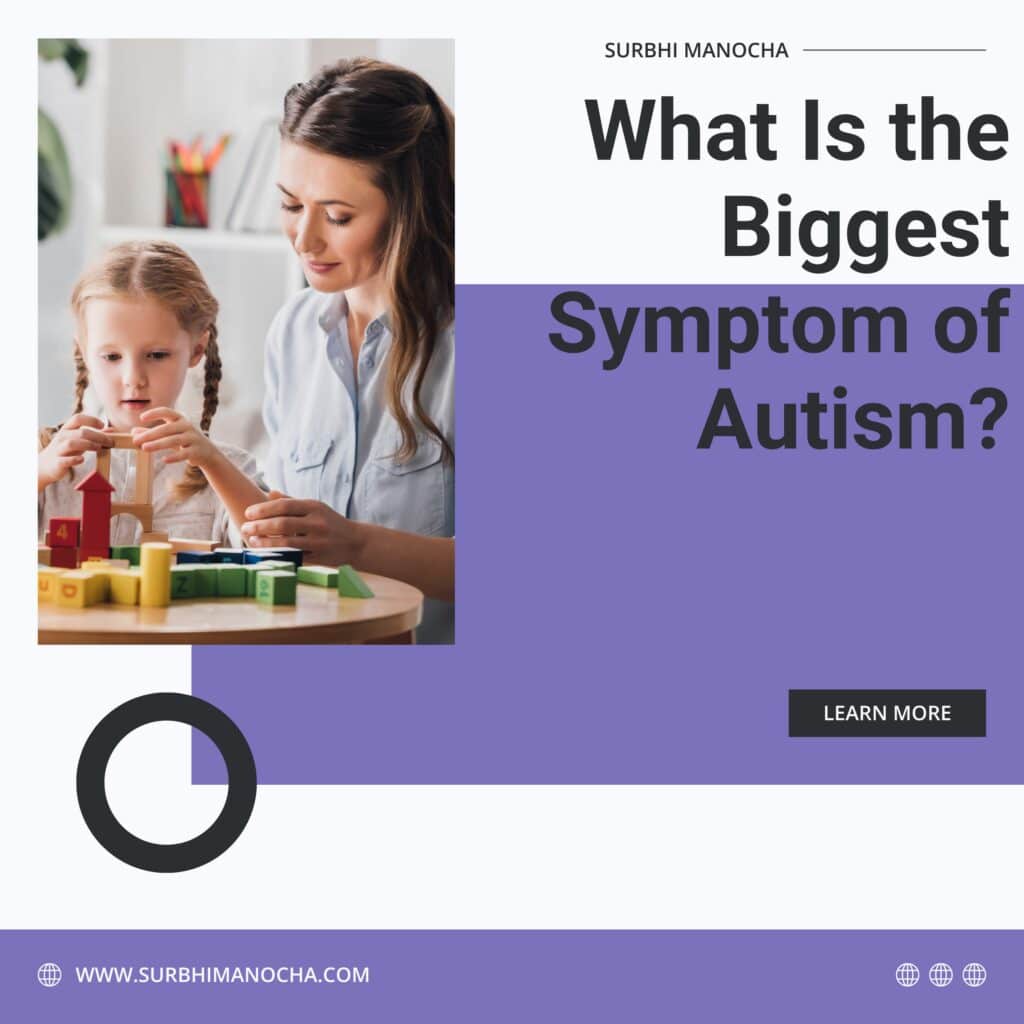Autism, or Autism Spectrum Disorder (ASD), is a developmental condition that affects how a person communicates, interacts socially, and processes information. It is referred to as a “spectrum” because the symptoms and their severity can vary widely from person to person. While there is no single “biggest symptom” that defines autism, difficulties in social communication and interaction are often considered the most prominent indicators.

This blog explores the key symptom of autism, how it manifests, and why it is essential to seek early assessment and intervention.
The Core Symptom: Challenges in Social Communication and Interaction
One of the most significant characteristics of autism is difficulty with social communication and interaction. This symptom can manifest in various ways, depending on the individual and their age, including:
- Difficulty Understanding Social Cues
- Struggling to interpret facial expressions, tone of voice, or body language.
- Difficulty understanding implied meanings, such as sarcasm or jokes.
- Limited or Unusual Eye Contact
- Avoiding eye contact during conversations.
- Overly intense or “staring” eye contact in some cases.
- Challenges in Building Relationships
- Difficulty initiating or maintaining friendships.
- Limited interest in playing or interacting with peers in a typical way.
- Delayed or Atypical Speech Development
- Delayed speaking milestones, such as first words or sentences.
- Repetitive use of phrases (echolalia) or speaking in a monotone.
- Preference for Solitary Activities
- Showing little interest in group activities or collaborative play.
- Enjoying activities that involve repetition or routine over imaginative play.
Other Common Symptoms
While social challenges are central to autism, other symptoms often accompany the condition:
- Repetitive Behaviors
- Engaging in repetitive actions, such as hand-flapping, rocking, or spinning objects.
- Insistence on sameness, including rigid adherence to routines or rituals.
- Sensory Sensitivities
- Overreacting or underreacting to sensory stimuli, such as sounds, lights, textures, or smells.
- Focused Interests
- Developing intense, specific interests in topics, such as trains, numbers, or specific hobbies.
- Difficulty Managing Emotions
- Struggling with emotional regulation, leading to meltdowns or difficulty adapting to changes.
Why Early Assessment Is Crucial
Identifying autism early is essential for providing timely intervention. Early diagnosis allows for tailored support, including:
- Speech and language therapy.
- Behavioral interventions, such as Applied Behavior Analysis (ABA).
- Social skills training.
- Support for parents and caregivers.
When to Seek Help
If you notice any of the following in your child, consider consulting a specialist for an autism assessment:
- Lack of response to their name by 12 months.
- No pointing or waving by 14 months.
- Limited or no speech by 16 months.
- Regressing skills (losing words or social abilities).
Conclusion
While challenges in social communication and interaction are often the most prominent symptoms of autism, the condition is complex and varies widely. Recognizing the signs early and seeking a professional assessment is the first step towards empowering individuals with autism to lead fulfilling lives.
If you are in Meerut and suspect autism in your child, reach out to a trusted specialist like Surbhi Manocha for a comprehensive evaluation and guidance. Early action can make all the difference.
